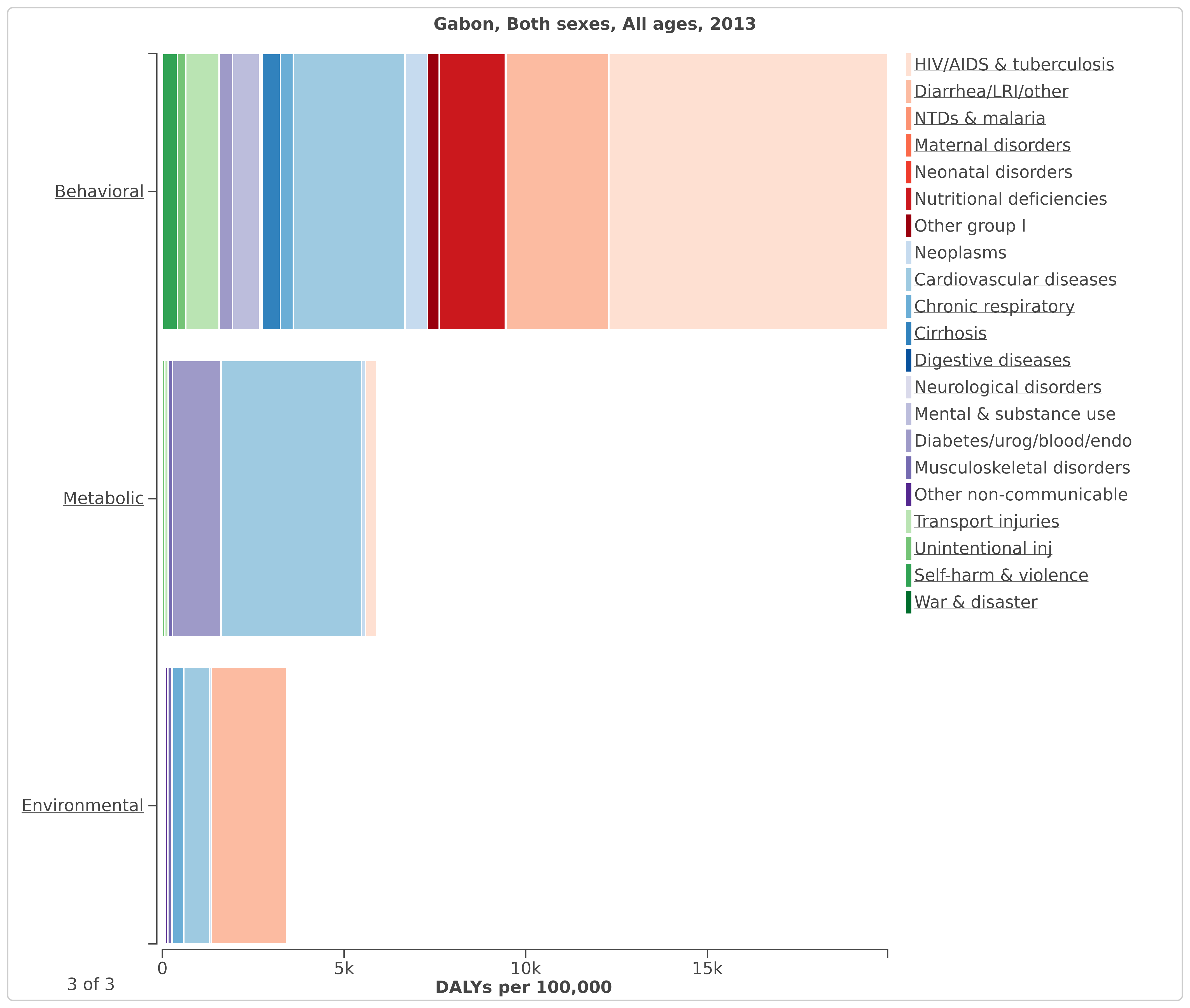|
Healthcare in Gabon is considered among the best in West Africa. It is the location of Albert Schweitzer Hospital (1913) and there are an estimated 29 physicians per 100,000 people, with 90% of the population having access to healthcare. The UN ranks Gabon 4th highest in Central Africa for Human Development.
Despte this, a large proportion of the population remains in poverty. The top 20% of Gabon's population earn over 90% of the income, despite the fact that the estimated per-capita GDP is very high for the region. The government has been criticized by the International Monetary Fund for borrowing excessively, poor infrastructure and low privatization. In May 2009, a French magistrate launched a probe into whether the presidents of three African oil-producing countries used embezzled public funds to buy luxury homes and cars. A 2007 French police probe found the leaders of Gabon, Congo Republic and Equatorial Guinea and their families owned dozens of bank accounts, homes in rich areas of Paris and on the Riviera.

The IHME mortality chart for Gabon reveals that AIDS, Tuberculosis and other infectious diseases make up the largest blocks of morbidity statistics (about 18%) compared to <1% for the USA.

The "World Factbook" population pyramid graphs the age and sex of the population. African nations tend to be very narrow near the top, with few of the citizens reaching advanced ages, while the USA's profile actually broadens in the middle and narrows slightly at the bottom, with fewer children being born.
Gabon is a coastal Central African state on the equator; it is home to 49 People Groups, 5 of whom are unreached according to the Joshua Project. Evangelism is spreading throughout Gabon and missionaries are plunging into the interior to minister to the Baka who are Gabon's earliest inhabitants.

Gabon is bordered by the Atlantic Ocean at the Equator, Equatorial Guinea and Cameroon to the North, and Republic of the Congo to the West and South.
Approximately 70 percent of Gabon's population would be classified Christian, with about 12.9% of that identified as evangelical. However, evangelicals have increased from 2.3% in 1960 to today's percentages, showing that evangelical growth in Gabon has been steady and sustained. There is evidence that the Church is also maturing in Gabon, but there is a long way to go, with animist influences often syncretizing Christian faith and practice here as elsewhere in West Africa. Eight to 15 percent are Muslim, of whom the majority are foreigners. Ten percent practices animism exclusively and a minority identifies with no religion. Many practice a syncretistic religious belief that combines elements of Christianity or Islam with traditional religious beliefs, Voudon (Voodoo), or animism.
|